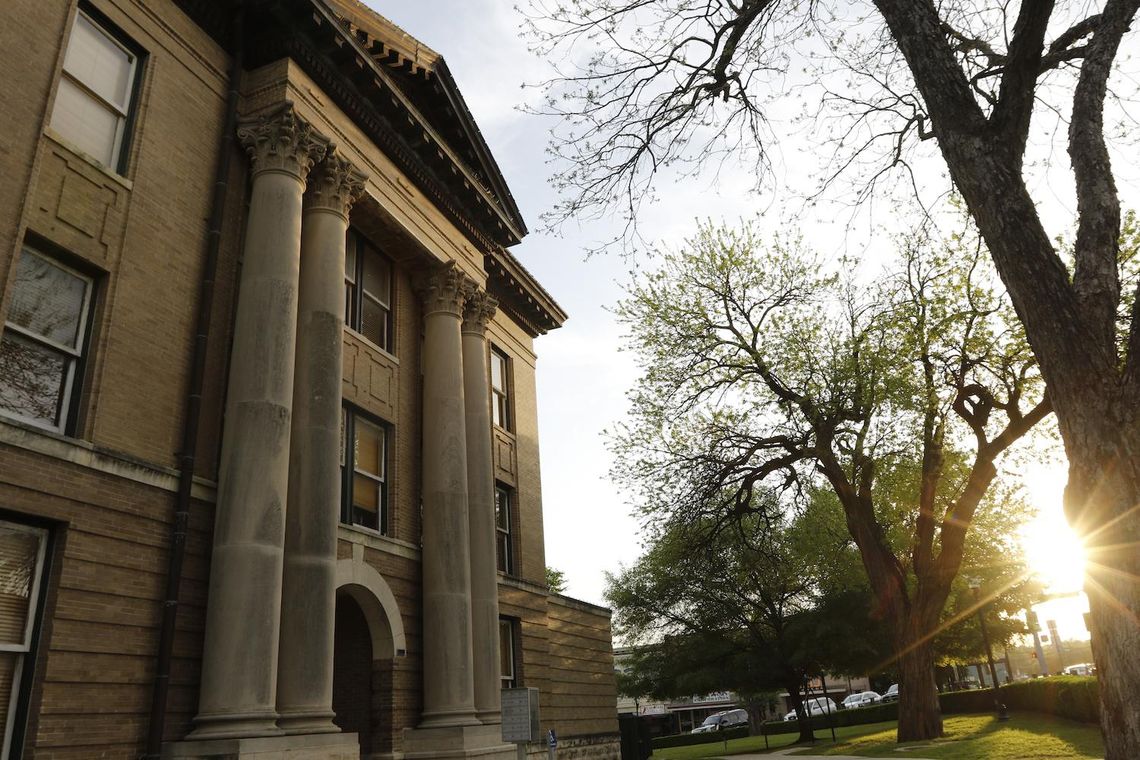An attempt to submit a grant application that would help fund a public defender’s office in Hays County failed to gain support not just once, but twice, in the Hays County Commissioners Court. The item was part of the commissioners’ regular meeting last Tuesday and was the subject of a special meeting held Friday, the deadline to submit the grant application to the Texas Indigent Defense Commission.
At this week’s commissioners court meeting, several residents spoke about the issue during the public comment period. Rodrigo Amaya expressed disappointment and called Friday’s special meeting an “incendiary experience.” Dan Lyon said that all four commissioners sat on the fence on the issue.
“Only Judge Becerra had the temerity to make a motion, and no one else would risk their political careers by seconding the motion,” he said.
John Leonard said last Tuesday’s meeting agenda made no mention of a public defender’s office — just a grant application — and Friday’s meeting offered little in the way of clarity.
“What we heard here on Friday reminded me of the title of a book … called ‘The Gang That Couldn’t Shoot Straight,’” he said, adding that although the court had heard stories of three people who were kept in the Hays County Jail longer than necessary, “I heard nothing from this court about what we are going to do about correcting that situation.”
County Judge Ruben Becerra and Precinct 1 Commissioner Debbie Gonzales Ingalsbe issued statements after Friday’s special meeting.
“Today was extremely disappointing. The commissioners decided not to move forward with submitting a grant application to The Texas Indigent Defense Commission to fund a public defender’s office with a very narrow and specific focus of mental health public defender, counsel at magistration for bond hearings, and Padilla attorney,” Becerra’s statement begins. “... The commissioners overwhelmingly and erroneously repeated that the Bar Association did not support the grant application. However, the Hays County Criminal Defense Bar Association had two members present at the meeting who were in support of the grant application and a letter was submitted from Amanda Erwin, who happens to be the president of the association, stating her approval of moving forward with the grant.
“The Commissioners continuously repeated that there was not a single Judge open to signing the grant application and continued with that narrative even after Judge Cary spoke up and said he would be willing to sign the application. Judge Cary [Justice of the Peace 5 Scott Cary] also stated that contrary to what Commissioner Smith said in court, ‘that he had reached out to ALL the Judges, and had conversations with each one,’ Commissioner Smith had never reached out to Judge Cary and spoken to him.”
Furthermore, Becerra mentioned the slowdown of the formation of the Criminal Justice Commission because the commissioners have not been “able to fully appoint members to the board in four weeks.”
The county judge also said he will contact the Texas Association of Counties to find out what the repercussions are for a commissioner lying on the dais. He called out Smith for stating that he had spoken to every judge in the county about the grant application.
“We now know that was a complete lie. There is no need for this unethical behavior. It is ok to be against an initiative, but it is not ok to lie to your constituents anywhere, but especially in court. I want our court to be truthful and work toward being worthy of the title ‘statesman’ instead of sleazy politician,” Becerra said.
Becerra stated he is “disappointed” that the county will spend millions of dollars a year on a “broken system” but he will put a workshop on a future commissioners court agenda to discuss criminal justice reform grants.
Ingalsbe urged unity on the commissioners court with her statement.
“There’s no question that those charged with crimes are entitled to counsel — whatever their financial circumstances,” her statement begins. “The issue faced by this court has been how our county will work to provide legal defense to those without the means to afford representation. One avenue to reaching this goal is through the establishment of the office of a public defender. We have heard expressions of support for this and other approaches, including robust pre-trial intervention.
“I respect and support County Judge Ruben Becerra’s action in reviewing the overall issue of criminal justice in Hays County. This is necessary and it’s good. And indigent representation is definitely an important part of that.
“The subject of Friday’s discussion was not about which approach was better. It was about taking a little more time to fully examine the benefits of both before selecting one or the other.
“Yes, the proposal for a public defender came with an incentive — a subsidy that would offset some of its costs for a limited period. That is very tempting. But for many of us, on the court and in the judicial and legal communities, we also felt it was appropriate to consider the longer-term benefits of both options, without the pressure of a looming grant deadline.
“We want to do this the best way. That may or may not be the quickest way. And it may or may not be the cheapest way. But as we act on issues affecting freedom and the ability of an accused party to mount an effective defense, or any defense at all, we must examine every option. That is our duty to those we represent. There is a consensus that we can and should do better than what we are doing today. With each of us pulling in the same direction, with the same goal, I believe we can.”







